Frances E. W. Harper
A Brighter Coming Day:
Rediscovering Frances Ellen Watkins Harper
(September 28, 1825 – February 22, 1911)
February 20 to February 27, 2011
100th Anniversary of the Death of
Frances E.W. Harper
12 Events in Various Locations
Introduction and Biography
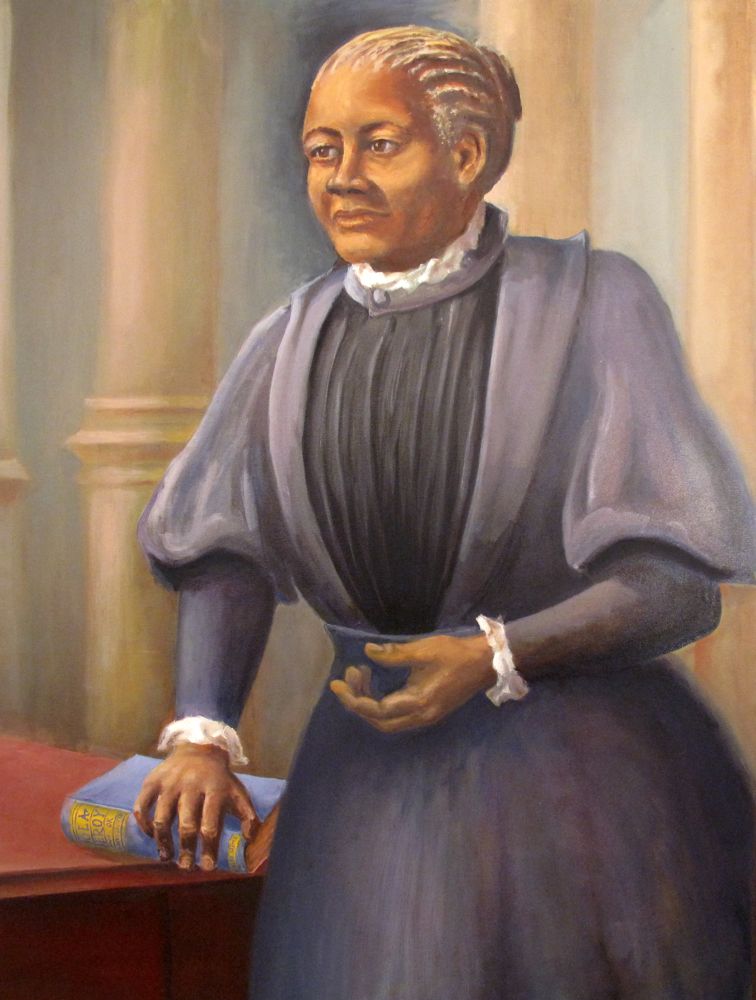
Why I Love Frances Harper: “I am attracted to smart women. I am attracted to talented women. I am attracted to brave women. I married one and we live happily ever after. Then, six months ago, I was introduced to this amazing woman who lived just a few blocks from me. Her name is Frances Ellen Watkins Harper. Ok, so she died a hundred years ago, but that is not relevant. It is so much fun to fall in love. I love language. I love learning new things. I love history. Especially the history of the ongoing struggle to make this world, this country, this city the kind of place it should be: where we are free; where opportunity is not based on race, class or gender; where we take care of each other. And I love sharing. Now that I know Frances, I want everyone to know her.” – Larry Robin
FRANCES E. W. HARPER
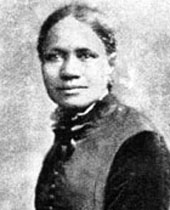 Frances Ellen Watkins Harper’s story is one of bravery, creative excellence, political consciousness, activism, and determination during the period preceding, during, and after the Civil War.
Frances Ellen Watkins Harper’s story is one of bravery, creative excellence, political consciousness, activism, and determination during the period preceding, during, and after the Civil War.
1825 – Born Frances Ellen Watkins in Baltimore, Maryland, she was orphaned at the age of three and raised by her uncle, the abolitionist William Watkins.
1846 – She began her amazing career as a writer by publishing her first book of poetry, Forest Leaves, at the age of 21.
1853 – Frances Watkins first moved to Philadelphia after meeting William Still, in order to become active in the Underground Railroad.
1858 – She refused to give up her seat or ride in the “colored” section of a segregated trolley car in Philadelphia (100 years before Rosa Parks) and wrote one her most famous poems, “Bury Me In A Free Land,” when she got very sick while on a lecturing tour. Her short story “The Two Offers” became the first short story to be published by an African American.
1859 – A dedicated abolitionist, Harper was one of the few public figures who did not abandon John Brown after his failed effort at Harpers Ferry, instead writing to him and staying with his wife, Mary, at the home of Lucretia Mott (Philadelphia’s leading Quaker Abolitionist) for the two weeks preceding his hanging.
1860 – She married Fenton Harper, had a daughter, Mary, and was widowed in 1864.
1865 – In the immediate post-Civil War years, Harper returned to the lecture circuit, focusing her attentions on education for the formerly enslaved, on the Equal Rights Movement and on the Temperance Movement.
1868 – She spent four years speaking and teaching in churches and Freedmen’s schools in the South, stressing the importance of education and self-empowerment.
1892 – Harper published her most famous novel, Iola Leroy, at the age of 67. This novel, which was written in Philadelphia, was a best seller and is one of the few books from this period to look at the mid-nineteenth century American landscape through African-American eyes.
1896 – Frances Harper became Vice President of the newly formed National Association of Colored Women.
1911 – Frances Ellen Watkins Harper died on February 22, 1911.
Frances E.W. Harper is considered the “Mother of African American Journalism” as well as the most famous nineteenth century African American poet and novelist. In her role as a political activist, Frances Ellen Watkins Harper was a brave, principled, and talented advocate for freedom and equality for everyone, speaking for the Anti-Slavery societies before the Civil War and for Women’s Suffrage and Temperance movements after. The study of her life not only gives us a picture of the lived experiences of an intelligent, educated, African American woman in the nineteenth century, but also provides us with a snapshot of Philadelphia and the nation from a perspective that is not usually presented. Despite all of her remarkable accomplishments, Frances E.W. Harper’s name cannot be found in most history books.
Program of Events
Saturday, January 15th, 2011
A BRIGHTER COMING DAY SPEAKERS
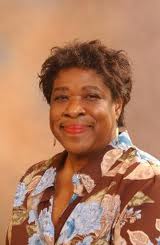 Lena Ampadu is Professor in the Department of English, Towson University, where she teaches composition, Survey of African American Literature, Major Writers of African American Literature, and courses on black women writers. In addition, she is the immediate past Director of the African and African American Studies Program. She has published a number of essays on composition and rhetoric, as well as on African American literature. Her specialty is oral traditions in African and African American women’s novels. Her publications include “The Poetry of Paul Laurence Dunbar and the Influence of African Aesthetics” (We Wear he Mask: Paul Laurence Dunbar and the Politics of Representative Reality) and “Maria Stewart: Womanism, Black Nationalism, and the Rhetoric of Black Preaching” (Black Women’s Intellectual Tradition: Speaking Their Minds). She has lectured on the Poetic Voice of Frances E.W. Harper and the Prose, Poetics, and Politics of Frances E. W. Harper and is presently working on a manuscript on Frances Harper and Pauline Hopkins.
Lena Ampadu is Professor in the Department of English, Towson University, where she teaches composition, Survey of African American Literature, Major Writers of African American Literature, and courses on black women writers. In addition, she is the immediate past Director of the African and African American Studies Program. She has published a number of essays on composition and rhetoric, as well as on African American literature. Her specialty is oral traditions in African and African American women’s novels. Her publications include “The Poetry of Paul Laurence Dunbar and the Influence of African Aesthetics” (We Wear he Mask: Paul Laurence Dunbar and the Politics of Representative Reality) and “Maria Stewart: Womanism, Black Nationalism, and the Rhetoric of Black Preaching” (Black Women’s Intellectual Tradition: Speaking Their Minds). She has lectured on the Poetic Voice of Frances E.W. Harper and the Prose, Poetics, and Politics of Frances E. W. Harper and is presently working on a manuscript on Frances Harper and Pauline Hopkins.
“Harper was a fascinating woman, an outspoken feminist of her day whose poetry and prose often delved into the challenges and problems facing all women, while celebrating women’s ability to survive and overcome. A social visionary, Harper commented on the sexual double standard that existed during the nineteenth century men and women; advocating literacy as an empowering, liberating tool for women; and used her pen and voice in the public sphere to oppose slavery. Many of her beliefs on justice and equality still resonate with meaning for today’s society.” -Lena Ampadu
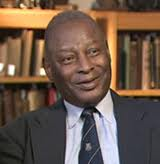 Charles L. Blockson is founder and curator of the Charles L. Blockson Afro-American Collection at Temple University which includes rare texts, slave narratives, art, and a host of other artifacts significant in African-American history. Born in Norristown, Pennsylvania, Blockson graduated from Pennsylvania State University and holds an honorary doctorate from Villanova University. Blockson has written several essays and books centered on African-American history, especially in Pennsylvania, including The Underground Railroad and Liberty Bell Era: The African-American Story.
Charles L. Blockson is founder and curator of the Charles L. Blockson Afro-American Collection at Temple University which includes rare texts, slave narratives, art, and a host of other artifacts significant in African-American history. Born in Norristown, Pennsylvania, Blockson graduated from Pennsylvania State University and holds an honorary doctorate from Villanova University. Blockson has written several essays and books centered on African-American history, especially in Pennsylvania, including The Underground Railroad and Liberty Bell Era: The African-American Story.
“She was an extraordinary woman of commitment and conviction for her people. She was a poet with a gift for words and an activist for African American, civil rights and Women’s rights. Oftentimes, she was overshadowed by her contemporaries, Harriet Tubman and Sojourner Truth, but she is a significant person whose legacy is long overdue.” – Charles L. Blockson
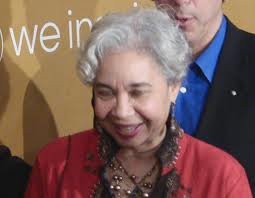 Melba Joyce Boyd is Distinguished Professor and Chair of Africana Studies at Wayne State University. She is the author of thirteen books, including Wrestling with the Muse: Dudley Randall and the Broadside Press which received the 2005 Black Caucus of the American Library Association Book Honor for Nonfiction, and the editor of Roses and Revolutions: the Collected Writings of Dudley Randall, which received the 2010 Library of Michigan Notable Books Award and was a finalist for a 2010 NAACP Image Award in Literature. Her 1994 book, Discarded Legacy: Politics and Poetics in the Life of Frances E. W. Harper, 1825-1911, was widely reviewed and praised by critics. Eight of her books are collections of poetry, the most recent of which is Death Dance of a Butterfly. She has won a number of awards including a Michigan Council for the Arts Individual Artist Award, and in 2009 she was a Nominee for the Kresge Eminent Artist Award. She is the series coeditor of the African American Life Series at WSU Press, and a contributing editor for The Black Scholar: The Journal of Black Studies and Research.
Melba Joyce Boyd is Distinguished Professor and Chair of Africana Studies at Wayne State University. She is the author of thirteen books, including Wrestling with the Muse: Dudley Randall and the Broadside Press which received the 2005 Black Caucus of the American Library Association Book Honor for Nonfiction, and the editor of Roses and Revolutions: the Collected Writings of Dudley Randall, which received the 2010 Library of Michigan Notable Books Award and was a finalist for a 2010 NAACP Image Award in Literature. Her 1994 book, Discarded Legacy: Politics and Poetics in the Life of Frances E. W. Harper, 1825-1911, was widely reviewed and praised by critics. Eight of her books are collections of poetry, the most recent of which is Death Dance of a Butterfly. She has won a number of awards including a Michigan Council for the Arts Individual Artist Award, and in 2009 she was a Nominee for the Kresge Eminent Artist Award. She is the series coeditor of the African American Life Series at WSU Press, and a contributing editor for The Black Scholar: The Journal of Black Studies and Research.
“Harper’s insight, developed during an era rife with violent enforcement of racism, sexism, and classism, constitutes a viable ideological framework for contemporary radical thought.” – Melba Joyce Boyd
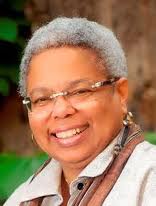 Frances Smith Foster is Charles Howard Candler Professor of English and Women’s Studies at Emory University. She regularly teaches undergraduate and graduate courses in African American literature and culture and in women’s literature and culture. Recent course offerings have included “The Profession of English,” “Family, Marriage and (Sexual) Morality in 19th century America,” “Slavery and the African American Literary Imagination, “Becoming a Woman,” and “African American Prize-winning and Prize-worthy Literature.” She has edited or written more than a dozen books, including Love and Marriage in Early African America, Written By Herself: Literary Production by African American Women, 1746-1892 and Witnessing Slavery: The Development of the Ante-Bellum Slave Narrative. She has edited, alone or jointly, works that include The Oxford Companion to African American Literature and The Norton Anthology of African American Literature as well as editions of several African American women’s texts including Minnie’s Sacrifice, Sowing and Reaping, and Trial and Triumph: Three Rediscovered Novels by Frances E.W. Harper. She is the editor of A Brighter Coming Day: A Frances Ellen Watkins Harper Reader.
Frances Smith Foster is Charles Howard Candler Professor of English and Women’s Studies at Emory University. She regularly teaches undergraduate and graduate courses in African American literature and culture and in women’s literature and culture. Recent course offerings have included “The Profession of English,” “Family, Marriage and (Sexual) Morality in 19th century America,” “Slavery and the African American Literary Imagination, “Becoming a Woman,” and “African American Prize-winning and Prize-worthy Literature.” She has edited or written more than a dozen books, including Love and Marriage in Early African America, Written By Herself: Literary Production by African American Women, 1746-1892 and Witnessing Slavery: The Development of the Ante-Bellum Slave Narrative. She has edited, alone or jointly, works that include The Oxford Companion to African American Literature and The Norton Anthology of African American Literature as well as editions of several African American women’s texts including Minnie’s Sacrifice, Sowing and Reaping, and Trial and Triumph: Three Rediscovered Novels by Frances E.W. Harper. She is the editor of A Brighter Coming Day: A Frances Ellen Watkins Harper Reader.
“One of the most interesting things about Frances E.W. Harper is her continued optimism in light of the less than inspiring realities with which she lived. She vowed to sing songs for the people and those songs were less light-hearted than light-giving.” – Frances Smith Foster
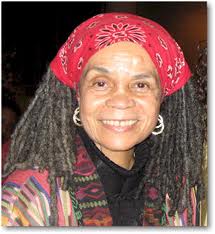 Sonia Sanchez is a poet, mother, activist, professor, and international lecturer on black culture and literature, women’s liberation, peace and racial justice. She has written over 16 books, including most recently, Morning Haiku. Sanchez was the first Presidential Fellow at Temple University, where she held the Laura Carnell Chair in English. The recipient of numerous awards, Sanchez has been honored by: the National Endowment for the Arts; the Pennsylvania Coalition of 100 Black Women; the National Black Caucus of State Legislators; the Governor’s Award for Excellence in the Humanities; the Peace and Freedom Award; and a Pew Fellowship in the Arts. Sanchez’s exemplary writing skills have earned her the American Book Award and the Langston Hughes Poetry Award. Her book, Does Your House Have Lions?, was a finalist for the National Book Critics Circle Award. Having lectured and read poetry to over 500 universities, colleges and organizations in the United States, Africa, Cuba, England, the Caribbean, Australia, Nicaragua, the People’s Republic of China, Norway and Canada, Sanchez has established a reputation as a highly renowned author and scholar.
Sonia Sanchez is a poet, mother, activist, professor, and international lecturer on black culture and literature, women’s liberation, peace and racial justice. She has written over 16 books, including most recently, Morning Haiku. Sanchez was the first Presidential Fellow at Temple University, where she held the Laura Carnell Chair in English. The recipient of numerous awards, Sanchez has been honored by: the National Endowment for the Arts; the Pennsylvania Coalition of 100 Black Women; the National Black Caucus of State Legislators; the Governor’s Award for Excellence in the Humanities; the Peace and Freedom Award; and a Pew Fellowship in the Arts. Sanchez’s exemplary writing skills have earned her the American Book Award and the Langston Hughes Poetry Award. Her book, Does Your House Have Lions?, was a finalist for the National Book Critics Circle Award. Having lectured and read poetry to over 500 universities, colleges and organizations in the United States, Africa, Cuba, England, the Caribbean, Australia, Nicaragua, the People’s Republic of China, Norway and Canada, Sanchez has established a reputation as a highly renowned author and scholar.
“This abolitionist black woman writer weaves the literary and political in her poems, novels, newspaper columns and essays. In doing so her life and writings were one and the same.” – Sonia Sanchez

